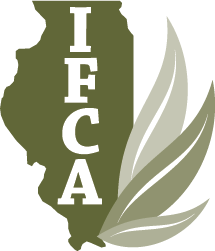Dicamba Application: Damage Report from MO and Pressure to Apply
This week IFCA received calls from several concerned ag retailers regarding the intense pressure they are under to custom apply dicamba to soybeans. The frustrations expressed surround the expectations that custom applicators should apply even if label conditions cannot be met, or business will be taken elsewhere. This is not a unique quandary when it comes to stewardship: those who want to do the right thing are sometimes pressured to do otherwise or lose the business.
In other cases, some growers who did not intend to use dicamba but who have now changed their minds are also requesting custom application of dicamba, but have not taken the necessary steps to identify the types of sensitive crops or areas planted next to or nearby their DT tolerant soybean fields. In the busy season, it is difficult if not impossible for retailers to make a last minute effort to identify the nature of all nearby crops in order to comply with the label ahead of a possible application. Most retailers did this well ahead of time for their customers that they knew would want dicamba applied. But last minute requests are difficult to manage as the weeds continue to grow, and the expectation in many cases is that this is the retailers job if they want the farmer's business. The ag retailers facing this are understandably frustrated with the need to maintain good customer relations, provide service to the growers in terms of weed control and to also comply with the law--namely the very restrictive and detailed dicamba labels. It is not easy and in many cases it is practically impossible. We must remind everyone that violating the label is violating both state and federal law and there are consequences that go against the applicator's license even if off-target movement does not impact yield.
So what can we do? IFCA has reached out to Illinois Farm Bureau asking them to stress that stewardship of dicamba is EVERYONE'S responsibility. Even if a farmer is not doing the application they can do a lot to assist their custom applicators by understanding the ramifications of not complying with the label, and it is not unreasonable to expect that the growers should know what crops are planted near their DT soybeans. All winter long, the farm groups have stressed to farmers that communication with neighbors, identification of nearby sensitive crops and understanding the labels are paramount to success and continued availability of this technology, even if they themselves would not be doing the applications.
Nearby in Missouri, the University of Missouri reported this week that as of June 1, dicamba injury has been reported not in soybeans but in specialty crops, vegetables, fruits and ornamentals and shade trees. Read the U of MO bulletin here:
https://ipm.missouri.edu/IPCM/2018/6/dicambainjuryConfined/ This is an obvious warning that off target movement has consequences not just to non DT soybeans, but to other plants.
Complaints to the IL Dept of Ag are on the rise, but we have no details yet on how many of them are potentially dicamba related. We will stay in communication with IDA and keep you posted. In the meantime, if this Regulatory Alert will help you communicate with your customers the need for everyone to support the label--and stewardship--please share it.
If there's anything else you feel IFCA can do at this time to further support our ag retail members, please call our office and share your ideas. To keep this technology, everyone must work together and understand the limitations of dicamba use. As was stressed in the training, not all fields are candidates for dicamba and customers need to understand that an applicator has the legal responsibility to say "No" if conditions do not allow for a legal application. Those who do apply in blatant violation of the label will have to consider how successful they really were if this product is cancelled at the end of 2018.
